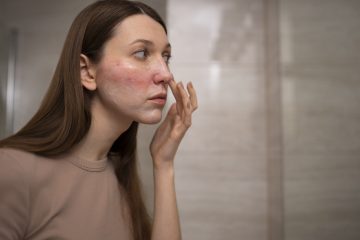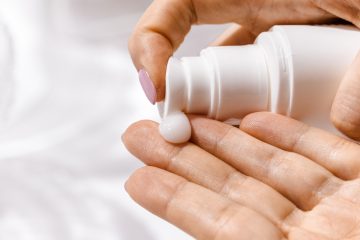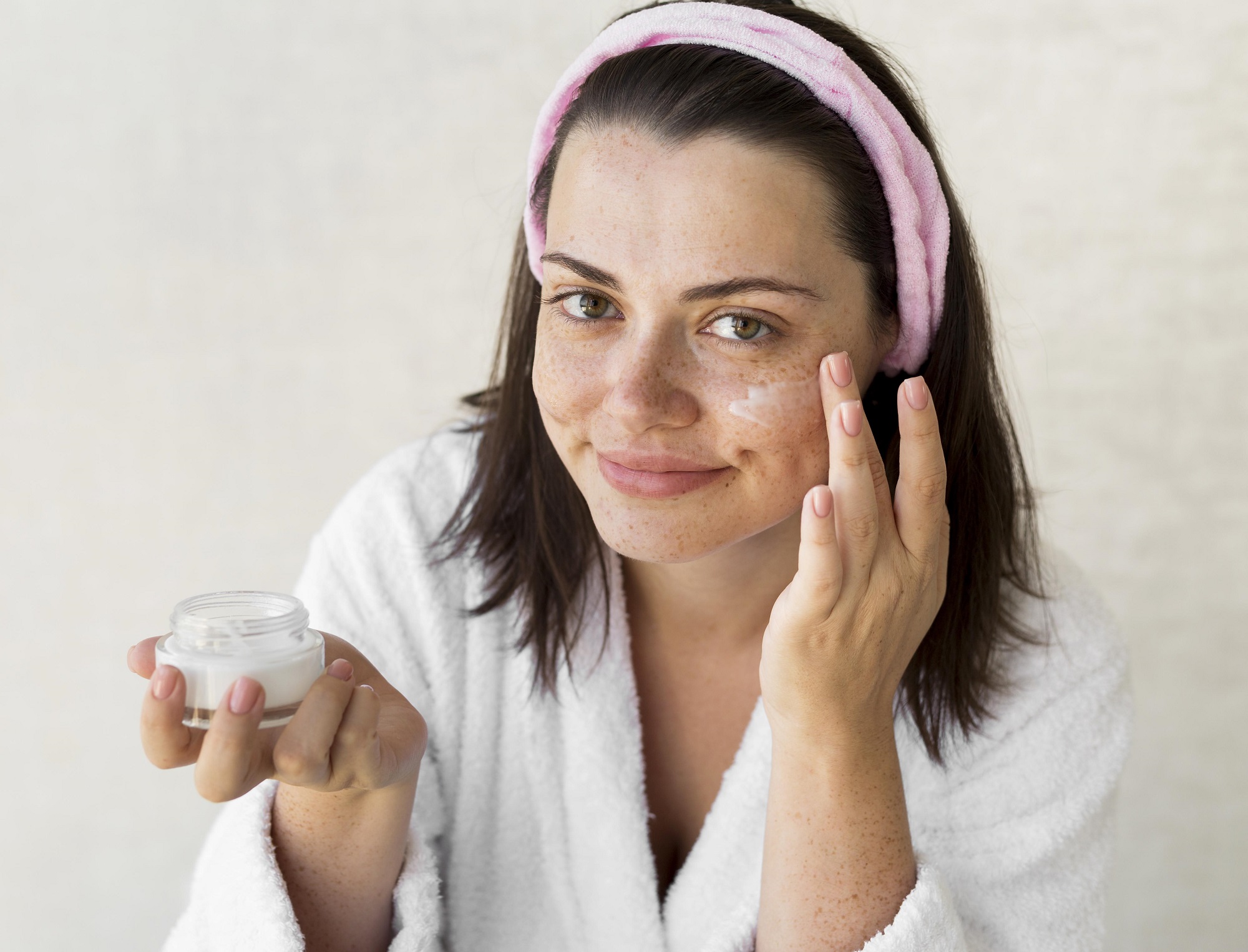Having acne-prone skin can be frustrating and challenging to manage. While many acne treatments focus on cleansing, exfoliating, and spot treatments, one crucial step that often gets overlooked is sunscreen. Yes, you heard it right – sunscreen can play a vital role in managing acne-prone skin.
Acne-prone skin tends to be sensitive and easily irritated. The harmful UV rays of the sun can trigger inflammation and make acne worse. Applying sunscreen with a non-comedogenic formula helps protect the skin from sun damage while not clogging the pores. It reduces the risk of post-inflammatory hyperpigmentation, a condition that can leave behind dark marks after a breakout.
Finding the right sunscreen for acne-prone skin is essential. Look for products labeled “oil-free,” “non-comedogenic,” and with a sun protection factor (SPF) of at least 30. Lightweight, gel-based formulas work well for oily skin types, while those with dry skin should opt for moisturizing sunscreens.
Incorporating sunscreen into your daily skincare routine can significantly improve the management of acne-prone skin. So, don’t forget to protect your skin from the sun’s harmful rays and keep your acne in check.
Understanding Acne-Prone Skin

Acne-prone skin is characterized by an increased likelihood of experiencing breakouts, which can range from mild to severe. This skin type is particularly sensitive to various triggers, including hormonal changes, environmental factors, and certain skincare products.
The primary cause of acne is the overproduction of oil, combined with the accumulation of dead skin cells, which can clog pores. This environment is conducive to the proliferation of bacteria, leading to inflammation and the development of acne lesions.
Individuals with acne-prone skin often struggle to find a balance in their skincare routine that addresses both the need for moisture and the control of excess oil. It’s a delicate dance that requires careful selection of products and a thorough understanding of ingredients.
The Importance of Sunscreen for Acne-Prone Skin
Sun exposure can have a myriad of effects on acne-prone skin. Ultraviolet (UV) rays can exacerbate inflammation and redness, leading to more pronounced acne symptoms. Furthermore, many acne treatments, including topical retinoids and benzoyl peroxide, can increase the skin’s sensitivity to sunlight, making it more susceptible to burning and damage.
Applying a suitable sunscreen daily can shield the skin from these harmful effects, reducing the likelihood of flare-ups and preventing the aggravation of existing acne. Moreover, sunscreen plays a critical role in preventing post-inflammatory hyperpigmentation, ensuring that once acne heals, it doesn’t leave behind lasting marks.
Sun damage also accelerates the aging process, leading to premature wrinkles and a loss of elasticity. By incorporating sunscreen into your acne management routine, you’re not only addressing immediate concerns but also investing in the long-term health and appearance of your skin.
How Sunscreen Helps Manage Acne
Sunscreen provides a physical barrier between the skin and the sun’s rays, significantly reducing the amount of UV radiation that penetrates the skin. This protective layer helps minimize inflammation, one of the primary contributors to acne flare-ups.
In addition to reducing inflammation, sunscreen can prevent the worsening of acne scars. UV exposure can darken scars and increase their visibility, a process effectively mitigated by regular sunscreen use.
Furthermore, by protecting the skin from sun damage, sunscreen helps maintain an even skin tone and texture. This is particularly beneficial for acne-prone skin, which may already exhibit areas of unevenness due to past breakouts.

Factors to Consider When Choosing Sunscreen for Acne-Prone Skin
Selecting the right sunscreen for acne-prone skin involves considering several factors to ensure that it offers effective protection without worsening acne symptoms. First and foremost, look for products labeled as “non-comedogenic” meaning they are formulated to not clog pores.
SPF rating is another critical factor; dermatologists recommend using a sunscreen with an SPF of 30 or higher for adequate protection. Additionally, the choice between physical (mineral) and chemical sunscreens depends on individual preference and skin sensitivity, with physical sunscreens often being more suitable for sensitive skin types.
Finally, the formulation of the sunscreen—whether it’s a lotion, gel, or spray—can influence its compatibility with acne-prone skin. Gel-based sunscreens, for instance, are lightweight and less likely to contribute to oiliness, making them a preferred option for many.
Tips for Using Sunscreen on Acne-Prone Skin
To maximize the benefits of sunscreen for acne-prone skin, apply it as the final step in your morning skincare routine, after moisturizer but before makeup. Ensure an even application, covering all exposed areas of the face and neck.
Reapplication is key, especially if spending extended periods outdoors or after swimming or sweating. A general guideline is to reapply every two hours to maintain optimal protection.
For those concerned about the texture or feel of sunscreen, opting for a mattifying formula can help control shine throughout the day, making sunscreen wear more comfortable.
Other Skincare Practices to Complement Sunscreen for Acne-Prone Skin
While sunscreen is a critical component of managing acne-prone skin, it should be part of a broader skincare routine that addresses the various factors contributing to acne. Gentle cleansing, regular exfoliation, and the use of non-comedogenic moisturizers and treatments designed for acne-prone skin can all play a role in maintaining clear skin.
It’s also important to be mindful of makeup choices. Opt for oil-free, non-comedogenic products that won’t clog pores or exacerbate acne.
Lastly, maintaining a healthy diet and staying hydrated can support skin health from the inside out, contributing to a clearer, more radiant complexion.
Common Misconceptions About Sunscreen and Acne
One prevalent myth is that sunscreen can cause acne. While certain formulas may be too heavy or oily for acne-prone skin, many sunscreens are specifically designed to be non-comedogenic and suitable for sensitive skin types.
Another misconception is that sunscreen isn’t necessary on cloudy days or for short periods of sun exposure. However, UV rays can penetrate clouds, and cumulative exposure over time can still cause damage. Therefore, daily application is essential for effective protection.
Additionally, some believe that tanning can improve acne, but in reality, sun exposure can lead to temporary drying of the skin, followed by an increase in oil production that can exacerbate acne.
Sunscreen Application and Reapplication Techniques for Acne-Prone Skin

Proper application and reapplication of sunscreen are vital for ensuring comprehensive protection. For the initial application, use a liberal amount—approximately a teaspoon for the face and neck—and apply it evenly, taking care to cover all exposed areas.
When reapplying, especially over makeup, using a sunscreen spray or powder can offer a convenient and effective solution. These formulations can be applied without disrupting makeup, providing an easy way to maintain protection throughout the day.
It’s also important to extend sunscreen application to often-neglected areas such as the ears, back of the neck, and hands, as these are also susceptible to sun damage and aging.
Conclusion
Sunscreen is an indispensable tool in skincare management, offering protection against harmful UV radiation, reducing the risk of post-inflammatory hyperpigmentation, and supporting overall skin health. By carefully selecting a suitable sunscreen, applying it correctly, and incorporating it into a comprehensive routine, individuals with sensitive or acne-prone skin can enjoy clearer, healthier skin. Remember, the key to effective sunscreen use is consistency. Make it a non-negotiable part of your daily regimen, and your skin will thank you in the long run.
